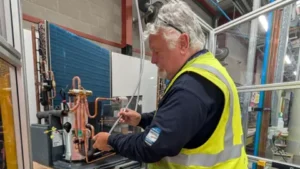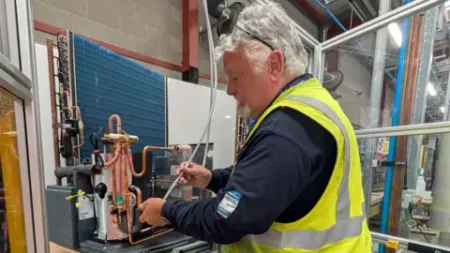The UK government has introduced a new initiative to encourage the transition from petrol and diesel vehicles to electric ones by offering substantial discounts on electric vehicles (EVs) as part of a new scheme. As per the announcement made by the Department for Transport (DfT), consumers can look forward to reductions of up to £3,750 on new EVs, aiming to make them more financially accessible. This program covers eligible vehicles priced up to £37,000 with the largest discounts available for those that are environmentally sustainable.
The implementation of these discounts allows car manufacturers to request funding starting Wednesday, and according to the RAC, consumers might start seeing the discounted vehicles in dealerships shortly, most likely within a few weeks. While this incentive is a positive step, many potential EV buyers have expressed a pressing concern: the current lack of charging infrastructure in the UK. With approximately 1.3 million electric cars already on the roads, the country only has about 82,000 public charging points available, hinting at a significant gap that needs to be addressed.
The overarching goal of this initiative aligns with the government’s commitment to completely phase out the sale of new petrol and diesel cars and vans by 2030. The discounts under this scheme will range from £1,500 to £3,750 and are set to be available at dealerships, encouraging more consumers to explore EV ownership. The government has allocated £650 million to support this endeavor, and the funding will span three years, enabling many families to benefit from more affordable electric vehicles.
Transport Secretary Heidi Alexander announced an additional investment of £63 million specifically aimed at enhancing the public charging infrastructure across the country. However, there are personal stories that highlight the struggles some individuals face when considering the switch to EVs. For instance, Carolyn Hammond from North Devon explained the complications she and her neighbors encounter due to their homes having only ‘single phase’ electricity. The cost associated with upgrading their electricity connection can exceed £20,000, making the transition to an electric vehicle financially unviable for many.
As discussions about the initiative unfold, some anticipation remains regarding the impact on working-class families. Critics, like Shadow Transport Secretary Gareth Bacon, have voiced their concerns that the Labour government is pushing families towards adopting electric vehicles before the necessary infrastructure is fully established, claiming that the shift is premature. Addressing these apprehensions, Alexander emphasized that the grant would not only relieve some financial burden for families but also enable the automotive sector to capitalize on an emerging opportunity within the 21st century.
Amidst this transition, different voices from consumers reflect a spectrum of opinions on the switch to electric vehicles. Jimmy Kim from London expressed his hesitance, citing financial impracticalities concerning EV ownership compared to efficient petrol or hybrid alternatives, particularly in the current economic climate. Conversely, Paul Cole, also from London, conveyed second thoughts about returning to petrol vehicles, emphasizing his satisfaction with the electric car he has owned for two years. He mentioned how advantageous it has been to charge his vehicle during off-peak electricity hours.
Collectively, while there are growing incentives for consumers to embrace electric vehicles, the road to a sustainable future entails addressing significant infrastructural and individual challenges. Past endeavors to grant funding for EVs came to a halt in 2022, redirecting focus towards alleviating key barriers and paving the way for electric vans and motorcycles as part of the broader transition. This comprehensive approach should carefully balance immediacy with sustainable growth within the sector while ensuring families have the necessary support to adapt to this paradigm shift in transportation.











